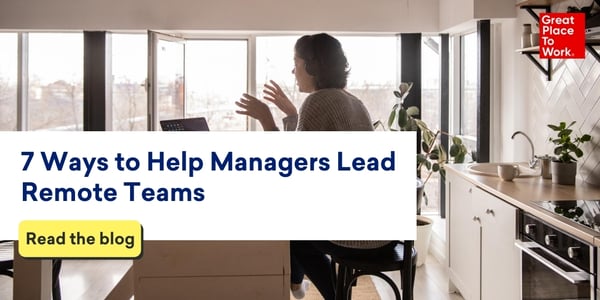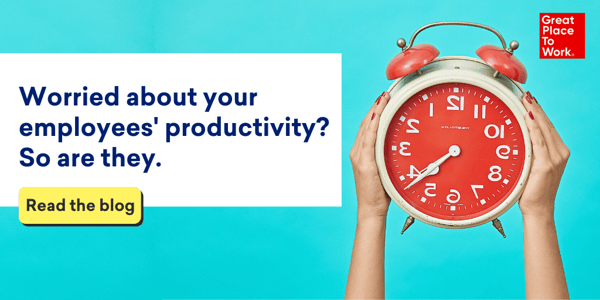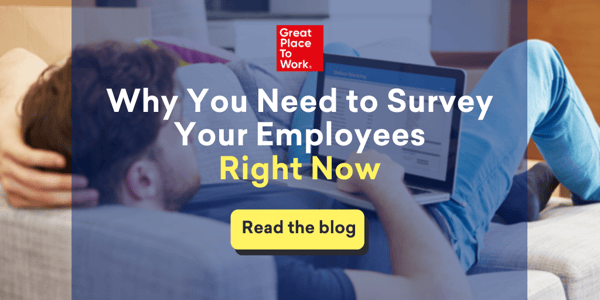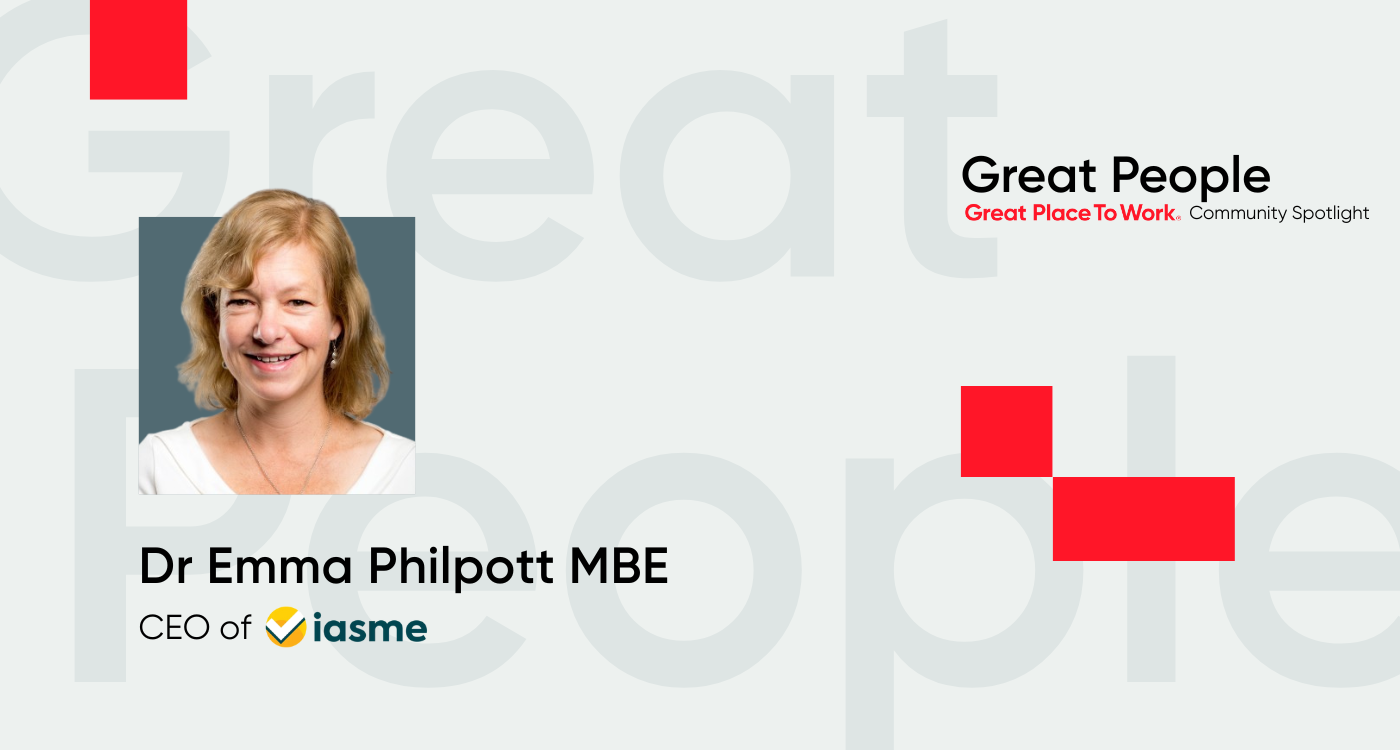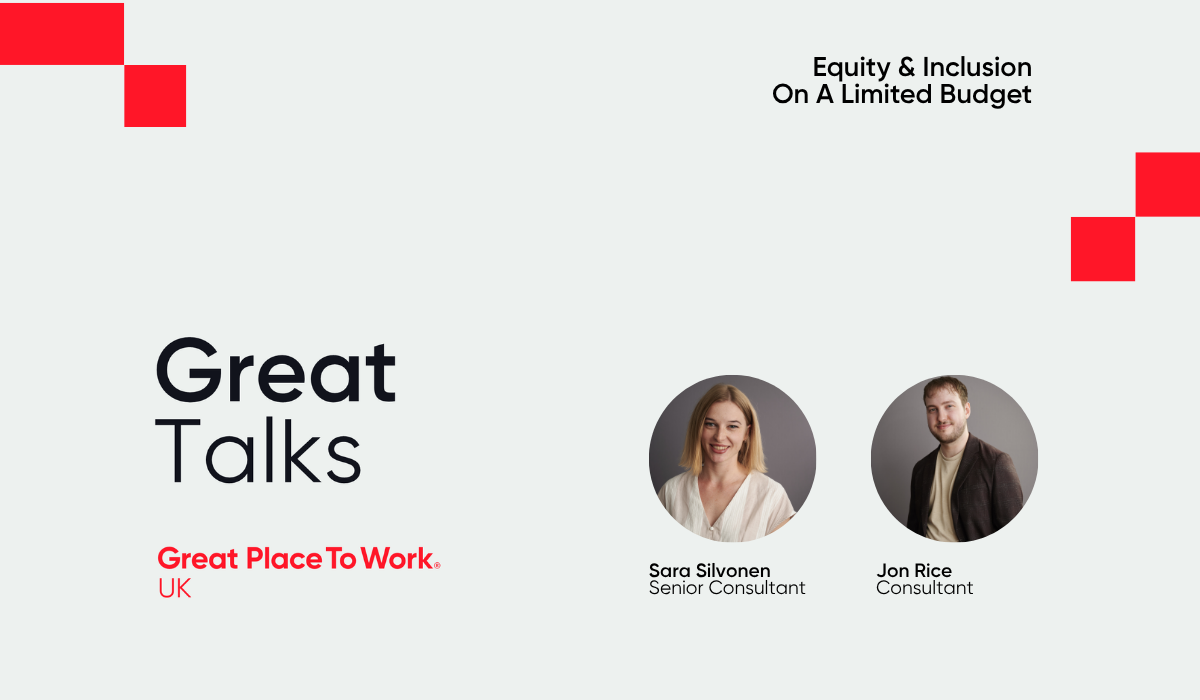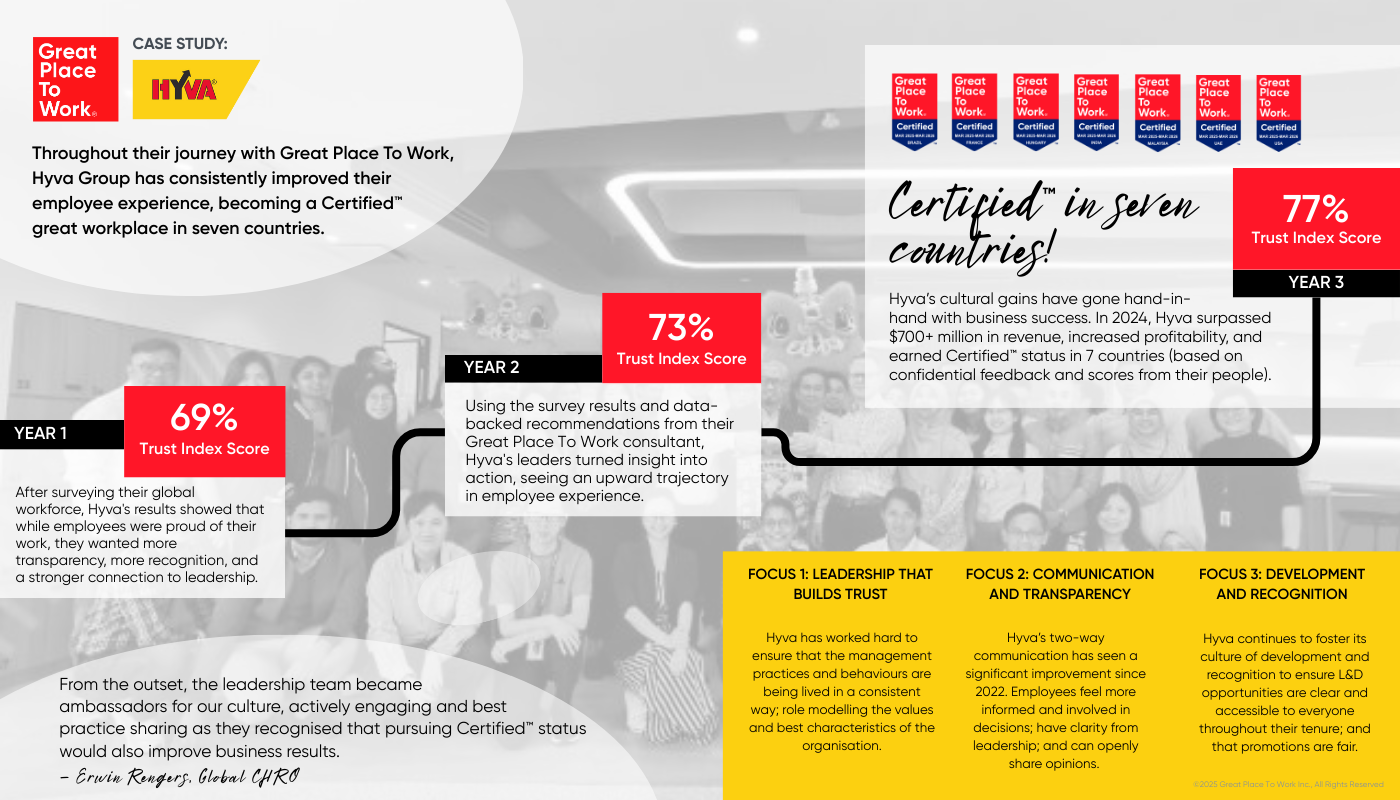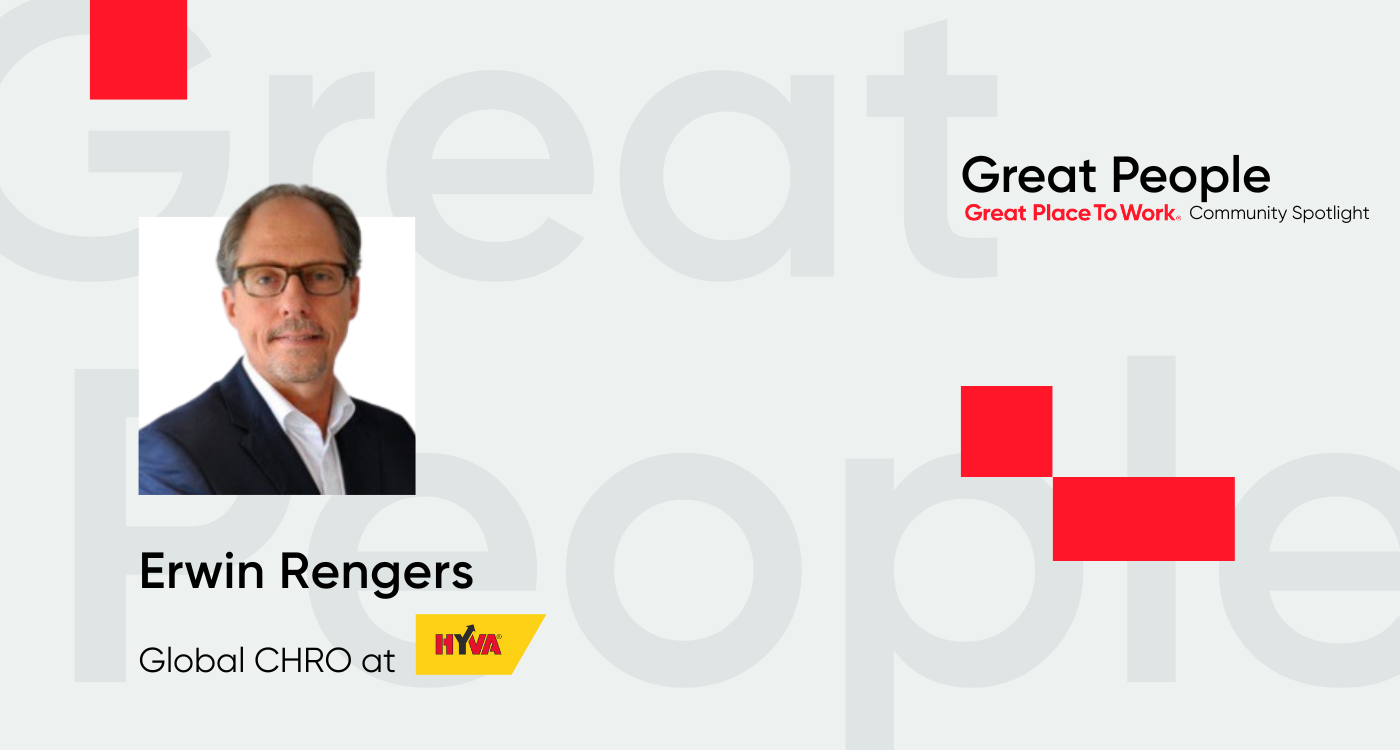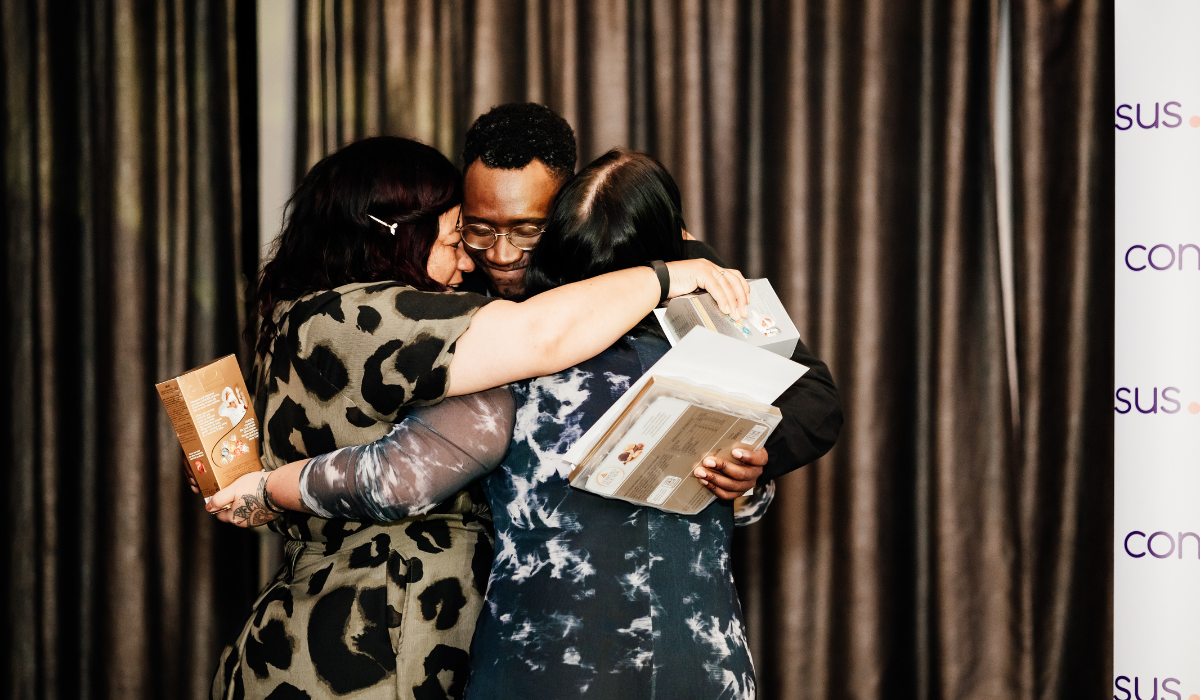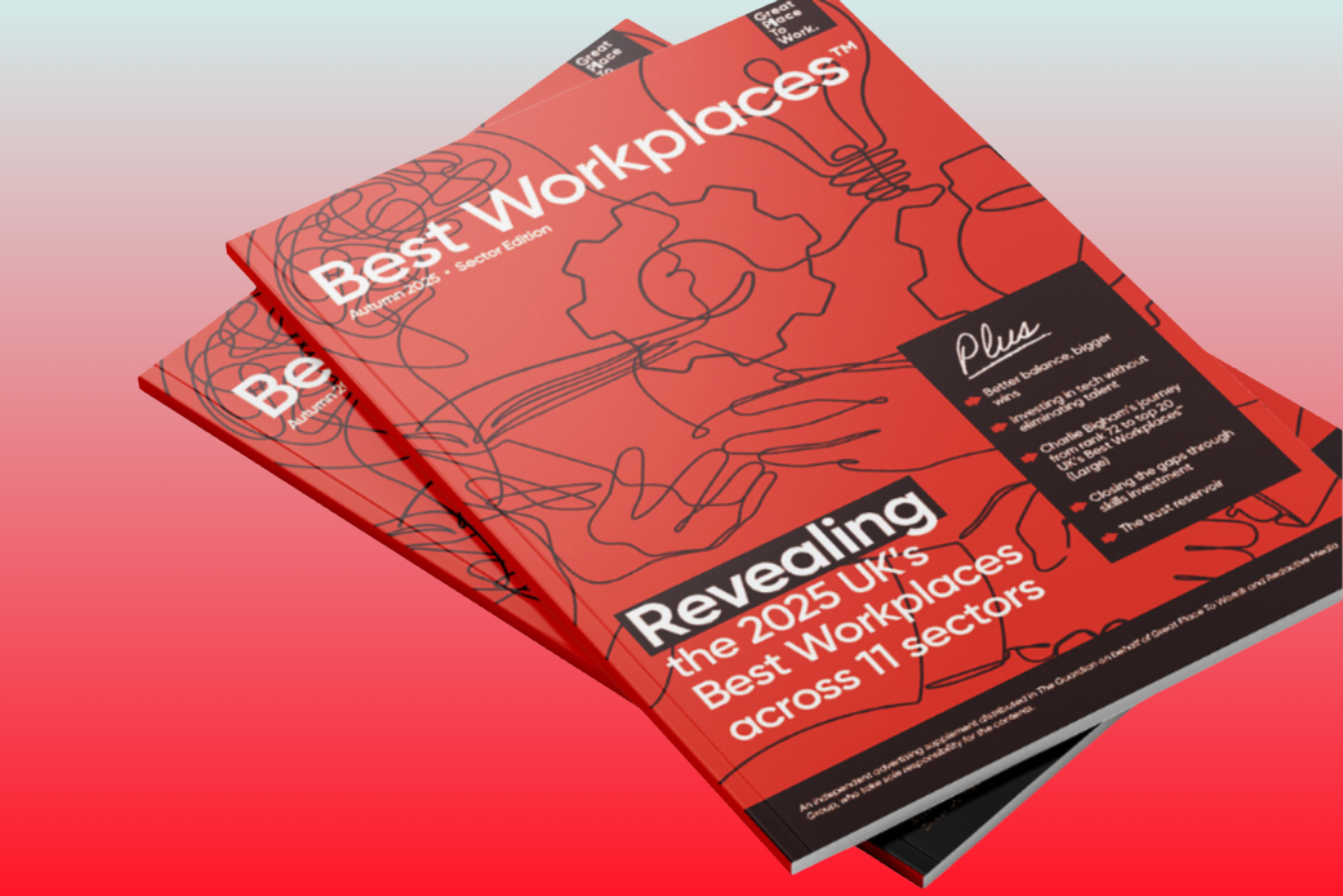‘Radical Simplicity’ changed the way DHL Express does business – and made them the most international company in the world! Learn how this simple approach can be applied to your organisation’s employee experience.
Great Place to Work® Group CEO, Michael Bush, recently sat down with Ken Allen, CEO DHL eCommerce Solutions and previous CEO DHL Express, for an in-depth conversation. Below we share how Radical Simplicity can work for your business, whether you have 100 or 100,000 employees.
What is Radical Simplicity?
Radical Simplicity tells the story of Ken Allen, both personally and professionally, turning DHL Express from a company that lost €2.2 billion (approx. £1.98 bn) in 2008 to making €1.0 billion (approx. £0.90 bn) ten years later.
Ken breaks down the philosophy like this:
- Radical describes the fervour behind your goals and strategy
“You have to know the detail of the industry that you're in”, Ken says. “You've got to be able to convey that message in a clear, concise manner to everybody through the organisation.” - Simplicity is about “knowing, in huge depth, your business and being able to explain that to everybody in the organisation; what their role is and where you want to get to.”
In other words, it means ensuring all employees know the organisation’s core business and mission, the strategy for achieving them, and how they each contribute to success.
It starts with “SELF” reflection.
Ken’s philosophy is what he calls “SELF” reflection:
Simplicity is the idea you have.
Execution is executing the strategy.
Leadership is pulling all the components together and keeping them going.
Focus is connecting all the elements to a singular mission.
Ken used this approach to train everyone at DHL Express on the core business and saw incredible results for his people and the bottom line.
 Help your line managers improve their remote leadership skills
Help your line managers improve their remote leadership skills
Managing teams can be tough. Get in touch to receive a complimentary 30-min consultation of our Virtual Leadership & Development Coaching Service today.
DHL’s approach to employee training
When looking to expand DHL’s presence in the United States, Ken chose to focus on one of DHL’s unique strengths: time-definite international shipping. He implemented the Certified International Specialist (CIS) programme – an extensive training for all employees on the principles of international shipping and DHL’s strategy.
DHL’s approach to training stands out for a few reasons:
- Instead of outsourcing trainers, DHL leaders and people managers became facilitators and trainers, becoming experts themselves in the process
- This in-house approach strengthened relationships between employees and their leaders
- As a multinational organisation, DHL emphasised communication in the CIS programme, using native speakers to translate the curriculum to into 42 languages.
In other words, the employee experience was front and centre for DHL’s training.
The programme was huge success, gathering external recognition three times in six months from 2012-2013 and catalysing a stronger company culture.
“It was a cultural booster. We invested a lot of money and we’d just started to turn the corner. And this was a $100 million programme,” Ken explains. “The CFO came to me and she said, ‘Ken, Ken, what if we invest all this money, and people leave? And I said, ‘Melanie, what if we don’t, and they stay?’”
How you can use Radical Simplicity in your organization
As the Covid-19 pandemic continues, implementing a large-scale training programme may not be feasible for many organisations. However, there are ways to implement Radical Simplicity for your business today:
1) Regularly monitor your company culture
Ken believes that without monitoring your company culture and employee engagement, business can suffer greatly:
“I think this is the key essence of leadership: it's got to be somehow monitored. Because leaders can create greatness, or they can totally destroy it.
“When people don't run businesses properly, it's not the C-suite who suffers that much. It's the people on the front lines who have been working like crazy to try and keep the company going. Frontline workers are the ones trying to cover up some of the faults that the management's made.”
Since 2015, DHL have been monitoring their employee experience with Emprising™, Great Place to Work’s survey and culture management platform. It enables DHL to analyse and measure their employee experience against different focus areas.
DHL doesn’t just survey their people annually. The company conducts pulse surveys throughout the year to understand employees’ needs and how they evolve and change with the times.
Especially during this pandemic, surveying now can provide leaders with crucial real-time data that helps them decide how to support employees’ pressing needs.
Ken says the area of employee engagement that he is most pleased about improving under monitoring is knowledge of company strategy: “It went from 56 to 88 [percent over a ten-year period] which in a business like ours, is almost unheard of.”
Continuous, prolonged monitoring of employee experience enabled DHL to accurately identify these knowledge gaps and address employees’ needs regarding the ins-and-outs of the business. Year over year, they were able to track and decrease these knowledge gaps, creating more informed and confident employees.
2) Find ways to keep your people motivated
Inspired and engaged people are a key force in driving business forward. Ken sees better service quality from motivated employees for two reasons:
- Motivated employees will have a better grasp of the tools and steps used to deliver for customers: “They will follow a process because they know, systemically, the network works. If you do everything right, the shipment will move from San Francisco, US to Montevideo, Uruguay without problems.”
- Motivated employees understand the importance of the customer experience:
“They know, that if something goes wrong, they have to show a lot of empathy for the customer, because the customer is our rallying cry. We call it ‘insanely customer-centric culture’.”
3) Help employees see more than just revenue targets
Ken explains that when employees know your core business and purpose, your company’s mission can go further. “A lot of the problems I've seen, is people chasing a revenue growth figure. And to do that, they go outside of their core business and what they're really good at. And they start chasing it down just to keep the top line growing.”
Ken believes that with focus on your core business comes growth. “Employees must know intimately every detail of your business. This is why you need to educate the salespeople a lot as well.”
At DHL, “Everyone's a salesperson”. But they know they sell more than just products – they sell core business and value. “Don't sell price,” Ken says. “I think that's one of the pitfalls that people fall into.”
Learn your company’s strengths and ensure everyone at the company is on the same page. Tap in with people leaders to ensure they have tools to communicate the core business with their teams.
We see how Ken used Radical Simplicity to lead DHL, turning it from a floundering company to now operating in over 220 countries and territories around the globe. Monitoring, educating, motivating and connecting your employees are invaluable measures to ensure your organisation keeps growing – even in these uncertain times.
Want help monitoring and your employee experience like DHL? Get in touch to learn about our culture management platform.
Read more leadership and culture insights:
About the Author: This feature has been adapted from the original article by Seth Willis, a Culture Coach at Great Place to Work®. When he’s not slicing and dicing employee survey results in Emprising™, he enjoys listening to hip-hop, going to stand-up comedy shows and growing his sneaker collection.
Great Place to Work® specialises in helping organisations build impactful workplace cultures. We are here to help support our clients during this period of uncertainty. If you are a client, please reach out to your Account Manager who can share the tools we have in place to enable workplaces to measure and understand their current employee sentiments. If you are not a current client, stay tuned to our blog posts, Twitter and LinkedIn for people practices, advice and thought leadership on how best to navigate this unprecedented time.


